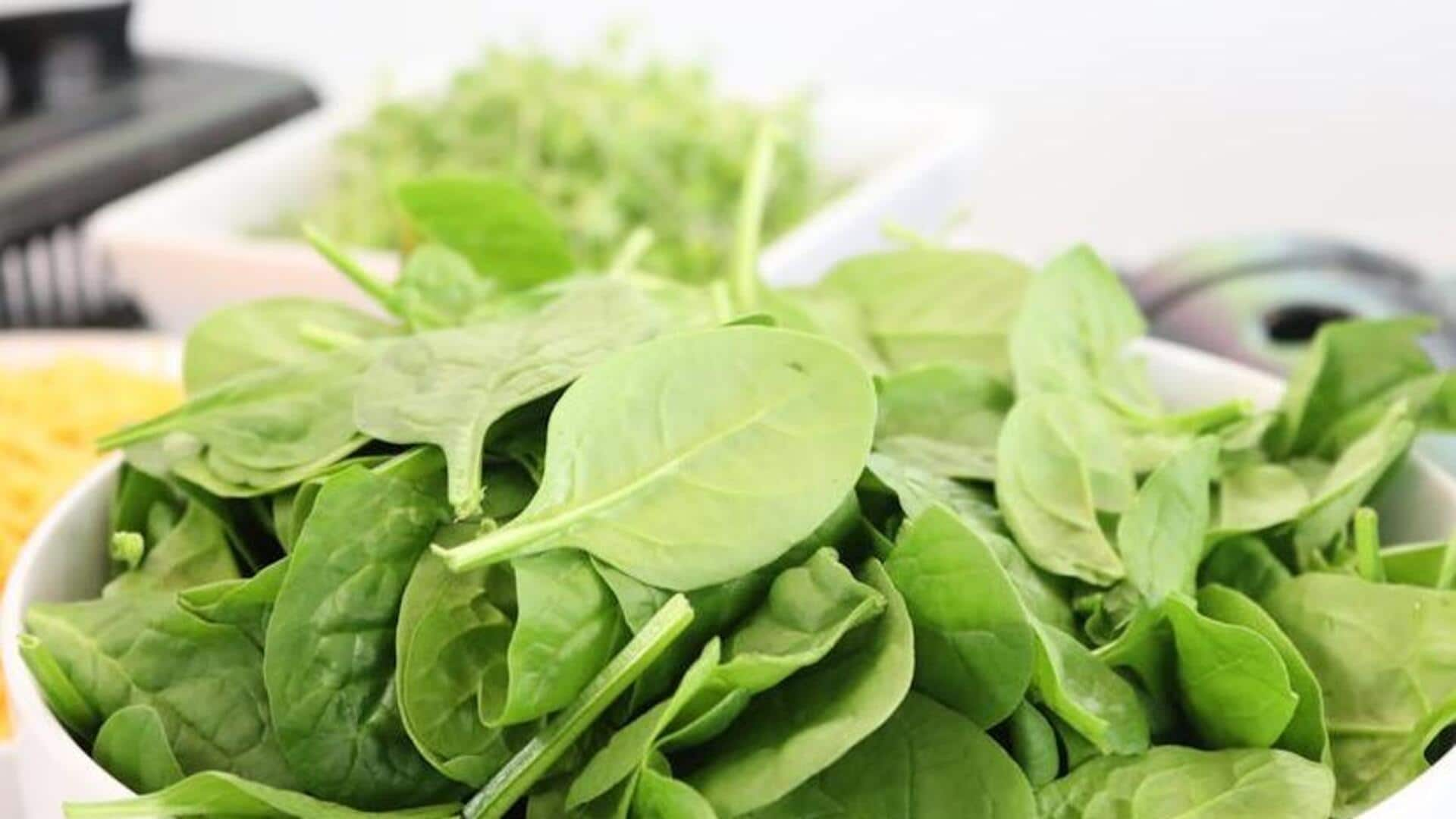
Spinach v/s kale: Comparing their health benefits
What's the story
Spinach and kale are two popular leafy greens that are often compared for their nutritional benefits.
Both are packed with vitamins and minerals, making excellent additions to a healthy diet.
However, when it comes to bone health, each green offers its own unique set of advantages.
Here are the specific nutrients found in spinach and kale that make your bones stronger.
It helps you decide which green might serve you better.
Calcium levels
Calcium content comparison
Calcium is essential to keep bones strong.
Kale has more calcium than spinach. A cup of cooked kale offers about 177 milligrams of calcium, while the same cup of cooked spinach provides roughly 245 milligrams.
However, since the bioavailability of calcium from kale is better, owing to the lesser presence of oxalates which inhibit calcium absorption, it proves to be a better choice.
Vitamin K levels
Vitamin K benefits
Vitamin K is also essential for bone metabolism and increases bone density.
Both spinach and kale are great sources of vitamin K, but kale wins slightly.
It has about 550 micrograms per cup as compared to spinach's 145 micrograms per cup when cooked.
This makes kale especially useful for people looking to increase their intake of vitamin K.
Magnesium content
Magnesium's role in bone health
Magnesium has an important role in supporting bone structure. It helps convert vitamin D into its active form, which facilitates efficient calcium absorption.
Spinach is a more magnesium-rich food than kale, providing approximately 157 milligrams per cup when cooked compared to kale's 31 milligrams per cup.
The inclusion of magnesium-rich foods such as spinach can be beneficial for overall bone health.
Oxalate presence
Oxalate levels impacting absorption
Oxalates can bind with minerals such as calcium and decrease their absorption in the body.
Spinach has higher amounts of oxalates than kale, which could affect how much calcium your body absorbs from it.
If you're worried about getting the most minerals from your diet, lower-oxalate options such as kale could work better.